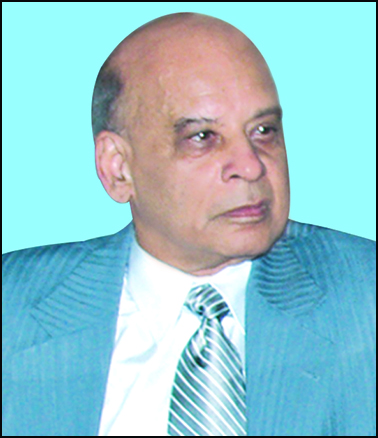Eating nutritious food, getting good sleep, regular exercise
and investing in social bonds is essential
Lt. Gen. Mahmud Ahmed Akhtar
Former Surgeon General Pakistan Army
Life Style Medicine
Avoiding chronic illness can be more important than just adding years to your life. Americans, on average, can expect to live about 76 years of age, but their health will start to decline much earlier than that, at around age 64, writes Danga Smith, a healthcare journalist. In spite of their highest spending on the healthcare, the age span is much lower than Japanese, Europeans, UK, Canada, Cuba and many other countries. It is due to the healthcare system. The countries adopting universal healthcare system, even with much lower spending like Cuba have higher health outcomes.

Lt. Gen. Mahmud Ahmed Akhtar
Some longevity influencers have gained notoriety by focusing on that first number claiming that they can radically extend human life with experimented drugs or laborious diets and supplemental protocols. But most experts who study aging are trying to focus on the second element; not our life spans, but our “healthy-spans” i.e., the number of years a person lives without serious disease, particularly those related to ageing.
Even if a very vocal fringe in the anti-aging community talks about living to 140, said Esie Verdin, the President and the Chief Executive of the Buck Institute for research on Aging, “most serious people in the field do not”. The most realistic goal he said is that most people could live to 90~95 in good health.
Increasing health span is also more in line with what many people want and their lives, I can tell you that older people are not afraid of dying, “said Luigi Ferrucci, a geriatrician and the scientific director of the National Institute on aging. What they are concerned about is that at some point they will become a burden on their family.
There are two main ways experts think we may be able to extend our health spans. The first way is adopting everyday healthy behaviors we already know, we should be engaging in eating nutritious food, getting good sleep and regular exercising and investing in our social bonds. The second is using more experimental approaches that focus on cellular processes involved with aging through drugs, genetic manipulations and extreme diets.
These innovative anti-aging interventions have been shown to lengthen the lives of worms and mice. But it would take decades and billions of dollars to determine whether they can help humans to live longer too. So instead, researchers are beginning to test a few of them in people to see if they can prolong health spans. The hope that drugs or other interventions will slow down the pace of aging which in turn could slow the onset of disease.

Researchers’ ultimate goal is that they may be able to postpone or even prevent virtually all age-related chronic illnesses including diabetes, cardiovascular diseases, strokes, dementia and certain cancers. By targeting aging pathways, you slowdown the aging process. Hopefully may be people live longer but most importantly they live healthier.
This is different from the traditional approach in medicine trying to address each disease individually. Rather than taking a piece meal strategy, researchers want to stop many age-related diseases in one fell swoop. Health span and life span are intrinsically linked. So, if people are healthier for longer, they are also likely to live longer period. Studies of centenarians have found that 42% do not experience an age-related chronic disease before 80.
Japan and Singapore, the two countries with the highest life span, experience an average about 84 years of age, peoples’ health start to decline around 73 years of age. It will take years before the research can tell us whether it is possible to reliably and safely slow down the aging process using the experimental approaches. But we can all start adopting some of the life-style changes to try to extend our own personal health spans now.
Of course, no matter how hard we try, most of us will still fall ill at some point in our lives, whether that is because of our genes or just bad luck. So, it is worth remembering that people with chronic diseases can have extremely meaningful lives, even their physical capacity declines, said Dr Debra Kao, a Professor of Medicine at Stanford University and a director of the Stanford center on longevity. Perhaps even more vital than the number of years’ people live in sickness or in health is their attitudes and the ways they spend the time they have.
How you decide to live whatever your time horizon is extremely important. None of us has that much control, so it is really how we address the challenges as they come at us. That is what is really successful, life hinges upon. We must make efforts to improve our health span and avoid chronic diseases by changing our lifestyle and attitudes. An optimal health span may enhance our life span.



